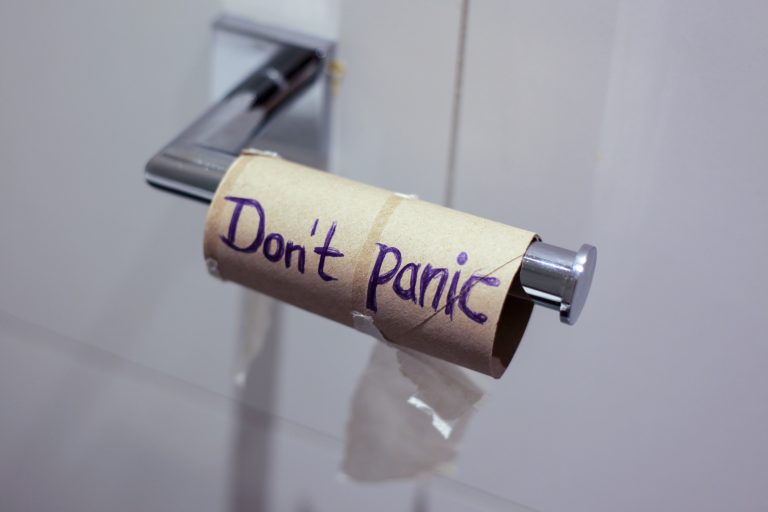What is personal financial stability? (12 important steps to take now)
Personal financial stability is maintaining a certain level of financial security over time. This means having a solid foundation of financial habits, skills and savings to protect you from the ups and downs of life.
Many people never achieve personal financial stability because they don’t know how to manage their money properly. They may be unable to save, invest, or budget effectively, which can lead to a lot of stress and anxiety.
It can be hard to maintain personal financial stability, especially when you’re struggling to make ends meet.
This article contains tips and advice for what is personal financial stability how to achieve it.
Keep reading to stabilise your own finances.

https://unsplash.com/photos/geNNFqfvw48
What is personal financial stability
Personal financial stability refers to the state of having sufficient financial resources and management skills to meet one’s living expenses, save for future goals, and handle unexpected financial challenges without undue stress or reliance on debt. It involves:
Sufficient Income: Earning enough income to cover living expenses and save for future goals.
Budgeting and Spending Control: Creating and sticking to a budget that allocates funds for necessities, savings, and discretionary spending.
Savings and Investments: Building savings and making investments to grow wealth over time.
Debt Management: Keeping debts at manageable levels and paying them off in a timely manner.
Emergency Fund: Having a fund equivalent to 3-6 months of living expenses for unexpected costs.
Insurance and Risk Management: Having adequate insurance to protect against unforeseen events such as medical emergencies or property damage.
Retirement Planning: Saving and planning for a financially secure retirement.
Financial Literacy: Understanding and effectively managing various aspects of personal finance.
Positive Credit Standing: Maintaining a good credit score by managing credit responsibly.
Personal financial stability is not just about having money; it’s about managing money effectively to achieve a balanced and stress-free financial life. It provides the foundation for personal freedom, choices, and security in the present and future.
Why is Personal Financial Stability Important
Personal financial stability is important because it gives you a sense of security and peace of mind.
When you’re financially stable, you don’t have to worry about money as much, which allows you to focus on other areas of your life.
There are many reasons why personal financial stability is important. When you’re stable financially, you reduce your chances of experiencing financial anxiety and stress. This can be beneficial for both your mental and physical health.
In order to achieve financial stability, you need to have a number of good money management habits and skills.
You can do many things to build this foundation, including creating a budget, saving money regularly, investing money wisely, and staying informed about personal finance.
Whatever your reasons for wanting to achieve financial stability, remember that it takes time and effort. But with a little hard work, you can reach your financial goals and enjoy the benefits of personal financial stability that it brings to your life.
What are the Challenges of Maintaining Financial Stability?
One of the endless challenges of maintaining financial stability is the endless advertising you are subjected to.
Emails, TV, Radio and social media are tempting us to spend all our money and more every minute and hour of the day.
The challenge of financial stability is overcoming temptation. It can be difficult to resist the urge to spend money when you’re not used to living within your budget. Especially when no one else seems to be!
Just try and remember you are running your own race and not someone else’s.
Unexpected expenses are also one of the big ways your finances can be derailed.
These can range from a broken appliance to a major car repair. This is why creating a buffer between you and the world is so important.
Read on to hear how you can take control of your money and create more stability in your life and finances.
12 ways to achieve personal financial stability
1. Have a clear GAME plan in place.
Having your own GAME plan is the number 1 way to reach your most important life and financial goals and create balance across your life.
The key to reaching your favourite future is to know what you want most in life by finding the balance between health, wealth, and happiness.
What areas of your life would you most like to change to reach your favourite future?
Are you clear on your goals, the actions you need to take to reach them, what money you might need to make it happen and how to execute your plan?
2. Track what is going on with your money
Knowing what is going on with your money is crucial for stabilising your money and life.
Understanding where your money is going and if you are happy with that is the first step in stopping the bleeding away of your money.
Once you know where your money is going, it may be time to spend less of it on stuff and send more of it towards the really important things to you.
Track your money and then send it to the right places. You might be surprised by how much of YOUR money just slips through your fingers.
3. Establish a budget and stick to it.
One of the best ways to achieve financial stability is by creating a budget and sticking to it. This will allow you to track your expenses and make sure you’re not spending more than you can afford.
It’s also important to be realistic with your budget – don’t set unrealistic goals that you’ll never be able to stick to.
You can use one of the many free or paid apps out there or go for the more hands-on Kakeibo method.
4. Live within your means
You must live within your means if you are ever going to have any financial stability.
When you’re not spending everything you earn, you have more money available to save and invest.
But when you spend everything you earn, you are one or two paychecks away from disaster and will never be able to save up for your most important goals.
It’s important to find a balance between enjoying life and living within your means. If you don’t, you are most likely driving into a brick wall sooner or later.
5. Save money regularly with automation
Another key to financial stability is saving money on a regular basis.
Create a savings goal and make sure you’re automatically transferring a fixed amount of money into your savings account every month. This will help you build up your savings over time.
Automating the process makes sure the weakest link, you and your habits, don’t get in the way.
It also takes out all the decision fatigue. Should I or should I not save this month? It just gets done every week or month for you.
6. Deal with your debt
Debt is highly likely to be part of what is causing you to be financially unstable.
When you’re debt-free, you no longer have to worry about making monthly payments and can focus on other financial goals. There are a number of different methods for paying off your debt, so it’s important to find the one that works best for you.
The debt snowball is a popular method for paying off debt.
The debt snowball method is a popular way to pay off debt.
With this method, you list your debts in order from smallest to largest and then pay them off one by one. You focus on the smallest debt first and put all of your extra money towards that debt until it’s paid off.
Once it’s paid off, you move on to the next smallest debt and so on. This method can be effective because it provides a sense of accomplishment as you pay off each debt.
Debt avalanche
The debt avalanche method is another popular way to pay off debt.
With this method, you list your debts from largest to smallest and then pay them off one by one. You focus on the largest debt first and put all of your extra money towards that debt until it’s paid off.
7. Improve your financial literacy
One of the best ways to maintain financial stability is to maintain and grow your financial literacy. This means understanding and applying the core principles of good money management and building wealth.
One of the best places to look is in your local library where you can borrow some of the greatest books on money management for free.
Books can be better than some of the online sources as they are less prone to clickbait articles and sensationalism about the latest get rich quick scheme.
Some great books to check out include.
- The richest man in Babylon
- The psychology of money
- Your money or your life.
8. Invest money wisely
Investing your money is another way to help build stability and wealth over time.
When you invest, you’re essentially putting your money into something that has the potential to pay you a regular income and grow in value over time.
Here you need to understand the difference between assets that pay you money and liabilities that you have to pay for. Collect assets get rid of liabilities.
There are a number of different investment options available, so it’s important to do your research and find one that’s right for you.
Your options include
- Rental properties
- Stocks
- Businesses
Be cautious about the latest shiny thing making all the headlines. Is it really an asset?
9. Become a money maker
One of the best ways to achieve financial stability is to make more money. Having a steady income makes it easier to manage your finances and stay on top of your expenses.
There are a number of different ways to make more money, so it’s important to find one that’s right for you.
Obviously, you can try and earn more by working more, asking for more or moving to get paid more.
But an even better way is to create assets that make you money while you sleep.
There are 3 core assets that can help you become a money maker.
- Rental Properties
- Paper assets like stocks
- Businesses online or physical.
All of these assets can earn you money in your sleep and provide a steady rising income and asset value over time.
10. Keep an eye on your credit score
Others often use your credit score, banks and insurers as a critical indicator of your overall financial health.
For this reason, it’s important to monitor your credit score and ensure it’s as high as possible and improving over time.
You can do this by checking your credit report regularly for free, clearing up any out of date information and, of course, paying your bills on time.
11. Have an emergency fund
An emergency fund is a key component of financial stability.
You can access this money in case of an emergency, such as a job loss or an unexpected medical bill.
3-6 months is a common recommendation for this, but you might want it larger given your own circumstances and what helps you sleep at night.
It’s important to have a savings goal for your emergency fund and ensure you automatically transfer a fixed amount of money into your savings account every month.
12. Seek some help
If you’re struggling to achieve financial stability on your own, it may be helpful to seek some outside help.
Here at Financially Happy, we can help you create a plan to achieve your financial goals and improve your overall financial situation.
We take you through a process of understanding your values and goals, the actions you need, how to figure out what money you need, how to create more, and then execute your plan.
Summary table personal financial stability
| Step | Description |
|---|---|
| Have a Clear GAME Plan in Place | Set Goals, create an Action plan, Monitor progress, and Evaluate results to achieve financial objectives. |
| Track What is Going on with Your Money | Regularly review bank statements, expenses, and income to understand your financial situation. |
| Establish a Budget and Stick to It | Create a budget that allocates funds for necessities, savings, and discretionary spending, and adhere to it. |
| Live Within Your Means | Spend less than you earn to avoid accumulating debt and to save for future goals. |
| Save Money Regularly with Automation | Set up automatic transfers to savings or investment accounts to consistently build wealth over time. |
| Deal with Your Debt | Focus on paying down debts, especially high-interest ones, and avoid accumulating unnecessary debt. |
| Improve Your Financial Literacy | Educate yourself on personal finance topics to make informed financial decisions. |
| Invest Money Wisely | Allocate funds to investments such as stocks, bonds, or real estate to grow your wealth. |
| Become a Money Maker | Explore additional income streams through side gigs, freelance work, or entrepreneurship. |
| Keep an Eye on Your Credit Score | Regularly check your credit score and take steps to improve it, as it affects loan eligibility and interest rates. |
| Have an Emergency Fund | Save 3-6 months’ worth of living expenses in an easily accessible account for unexpected costs. |
| Seek Help | Consult a financial advisor or seek professional help for personalized financial planning and advice. |
FAQ What is personal financial stability?
What is personal financial stability?
Personal financial stability is the ability to maintain a certain level of financial security over time. This means having a solid foundation of personal finances in place, which can help you handle unexpected expenses and challenges.
How can I achieve personal financial stability?
You can do several things to achieve personal financial stability, including saving, investing, and budgeting. It may take some time and effort to get your finances in order, but it is definitely worth it in the end.
What are the challenges of maintaining financial stability?
Maintaining personal financial stability can be difficult, especially if you have a lot of debt or if you’re not good with money. There are a number of challenges you may face, including temptations to spend, unexpected expenses, and changes in your financial situation.
How can I stay on top of my personal finances?
You can do several things to stay on top of your finances, including creating a budget, tracking your spending, and investing your money. It is important to be proactive about your finances and stay on top of your money so you can avoid stress and anxiety.
What are the benefits of achieving personal financial stability?
Achieving personal financial stability has many benefits, including peace of mind, freedom from debt, and the ability to save for retirement or other goals. When you have your finances in order, you can focus on living a happy and fulfilling life.
What does it mean to be financially stable?
Being financially stable means having enough money to meet your basic needs and being able to manage your finances in a responsible and sustainable way.
Financial stability often involves having a steady and reliable source of income, living within your means, paying off debt, saving money for emergencies and retirement, and investing for the future.
It also means being able to handle unexpected expenses without relying on credit or taking on new debt.
Financial stability provides a sense of security and peace of mind, allowing you to focus on other aspects of your life without worrying about money.
Conclusion: What is personal financial stability?
So, there you have 12 ways to help you achieve financial stability.
We hope you found this information helpful and that it has given you some ideas about how to get your finances in order.
Remember, it’s important to take things one step at a time and have a clear GAME plan in place to make the most of your money.
If you need help getting started, don’t hesitate to reach out for assistance.
At Financially Happy, we want you to enjoy your favourite financial future, whatever that may look like for you!
Need a Helping Hand with Your Finances? 🤝💰
If you’ve made it this far, congratulations! You’re already taking steps towards a healthier financial future. But maybe you’re feeling a bit overwhelmed. Maybe the thought of budgeting, saving, and investing still makes you break out in a cold sweat. Don’t worry, you’re not alone, and help is available.
At Financially Happy Money Coaching, I understand that money isn’t just about numbers. It’s about emotions, behaviours, and life choices. That’s why we’re here to help you take the stress out of money and build wealth in a way that aligns with your values and lifestyle.
Whether you’re just starting out on your financial journey or you’re looking to take your finances to the next level, we’re here to guide you every step of the way. I’ll help you understand your financial behaviours, set realistic goals, and create a personalized plan to achieve those goals.
So, why wait? Start your journey towards financial happiness today. Remember, the best time to start was yesterday. The second best time is now.
Click here to schedule your consultation and let’s make your money work for you, not vice versa. 💪💰
Remember, financial freedom isn’t a destination; it’s a journey. And every journey is easier when you have a guide. So, let’s embark on this journey together and create a financially happy future. 🚀







